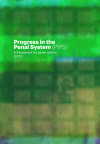On average, women make up around 3.8% of the prison population, with a large number of committals concerning non-violent offences. Additionally, the majority are detained on short-term sentences. However, the impact of even short-term imprisonment on these women and their families is profound. The economic and social costs to society at large arising from the imprisonment of women are also significant.
In 2021, there were 487 women committed to prison, compared to 155 in 1999. The rate of female prison committals has risen more rapidly than for males since 2011. In addition, there continues to be significant numbers of women imprisoned for failing to pay court-ordered fines, despite the Fines (Payment and Recovery Act) 2014 which came into operation in January 2016. In 2021, 8% of female committals to prison were for non-payment of court-ordered fines – double the comparable figure for men (4%).
Major concerns remain in relation to overcrowding in both of the country’s female prisons – the Dóchas Centre and a female wing in Limerick Prison. The detention of women for immigration-related reasons is also a concern for IPRT. IPRT remains committed to working towards major policy change in relation to imprisonment of women in Ireland, with a central focus on the provision of alternatives to detention and open prison provision for women.

29th December 2024
On 29 December 2024, journalist Julieanne Corr of The Sunday Times reported on how overcrowding and staff shortages at Mountjoy lead to new mothers and babies spending much of the day in their cells,...

24th October 2024
On 24 October 2024, IPRT Executive Director Saoirse Brady spoke to Andrea Gilligan on Newtalk Lunchtime live in response to the UK Justice Secretary Shabana Mahmood saying that she believes “prison isn’t working” for women.
14th October 2024
IPRT welcomes the opportunity to contribute to the Department of Children, Equality, Disability, Integration and Youth consultation on the successor to the National Strategy for Women and Girls. IPRT's submission makes 15 recommendations.

6th June 2024
On 6 June 2024, Focus Ireland launched the evaluation of their Women’s Outlook Programme. Irish Penal Reform Trust (IPRT) Executive Director, Saoirse Brady, spoke at the event. The event was covered by Irish Times journalist Kitty Holland - read the article on the Irish Times website.
31st January 2024
Together a Chance’ by CASCADE is an evaluation of a three-year pilot scheme that placed social workers in two women’s prisons in England. The pilot project intended to support and advocate for women whose children are involved with children’s social care in the originating local authority.

29th January 2024
The Law Society Gazette reported on IPRT's response to the publication by the Minister for Justice, Helen McEntee of the Office of the Inspector of Prisons (OIP) Inspection Report Oversight Monitoring Visit During COVID-19 Pandemic Mountjoy Female Prison (Dóchas Centre) 2020 and supporting Action Plan.
26th January 2024
MEDIA RELEASE: IPRT welcomes the publication by the Minister for Justice, Helen McEntee of the Office of the Inspector of Prisons (OIP) Inspection Report Oversight Monitoring Visit During COVID-19 Pandemic Mountjoy Female Prison (Dóchas Centre) 2020 and supporting action plan (25 January 2024) but raises concerns about delays in publishing the report and the issues within noted within it.

26th May 2023
'Progress in the Penal System: A framework for penal reform (2022)' is the sixth in a series of annual reports benchmarking progress in Ireland's penal system.
6th July 2022
The third meeting of the All-Party Oireachtas Group on Penal Reform took place on Wednesday 6 July 2022 in the AV Room of Leinster House. The focus of the meeting was the imprisonment of women.

30th May 2022
IPRT welcomed the opportunity to provide this alternative report to the UN Human Rights Committee on Ireland’s fifth review under the International Covenant on Civil and Political Rights (ICCPR).




Respect for rights in the penal system with prison as a last resort.